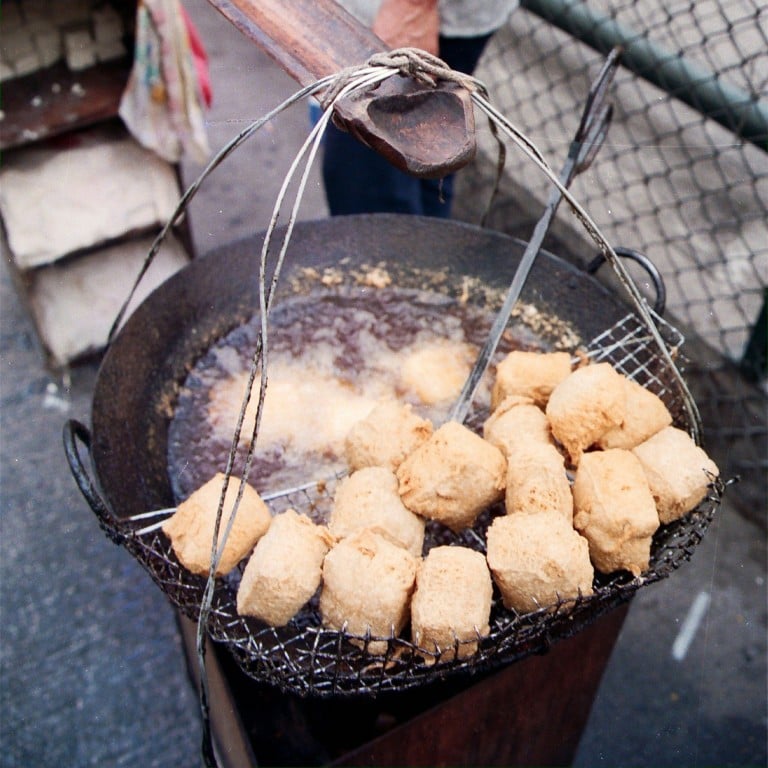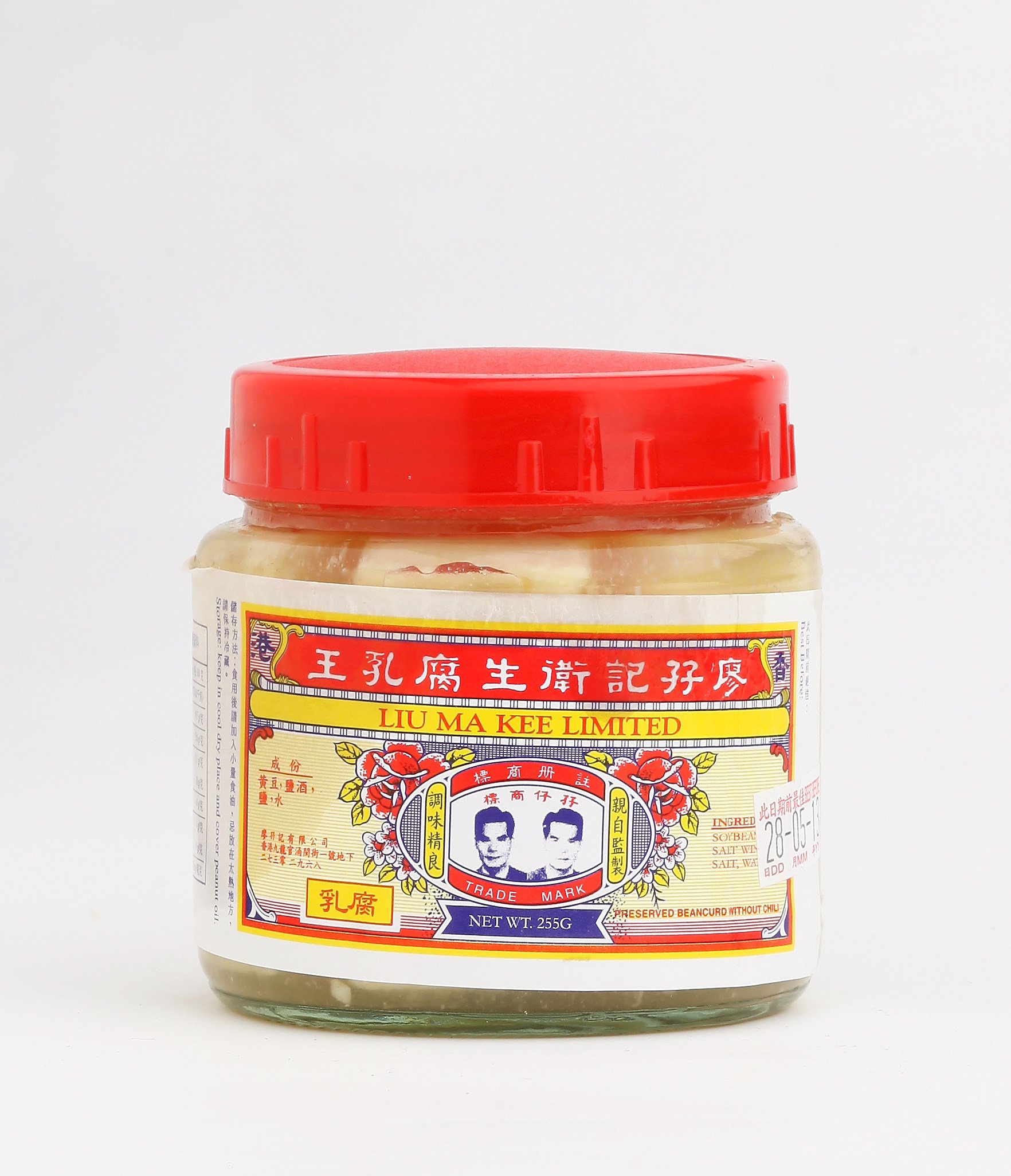
Why Chinese love fermented bean curd and even stinky tofu: it’s cheap, adds flavour to rice and congee, is a good source of protein, and lots more
- Easily digestible and healthy, a cube or two of fermented bean curd added to a bowl of rice or congee gives additional taste to an otherwise bland meal
- Even stinky tofu – an eye-wateringly pungent streetside snack made by deep frying fermented bean curd – can become very addictive to those who come to enjoy it
Humble, pungent-tasting foo yu – fermented blocks of bean curd – are a staple of cuisines across China and the diaspora. A favourite from when I first encountered them in the home of Chinese friends in Malaysia, long before coming to live in Hong Kong, this inexpensive item has been a kitchen store-cupboard favourite ever since.
Foo yu is a good source of vegetable protein. Easily digestible and healthy, a cube or two added to a bowl of rice or congee gives additional taste to an otherwise bland meal, and is cheap enough for even the poorest households to consume daily.
An array of variants can be found; some are preserved in vinegar or brine, others are packed in oil. Many are entirely plain and resemble feta cheese; others are heavily seasoned with garlic, red chillies, Sichuan pepper or ginger.
Like many such items, a small-scale local industry evolved around foo yu production; in Hong Kong, long-established, family-owned and operated shops from Kennedy Town to Tsuen Wan all have their own loyal customers.

Along with other Hong Kong heritage food items, artisanal foo yu is mostly produced on the premises in small batches using closely guarded (if similar) family recipes.
While most foo yu are sold pre-packaged in glass bottles with old-fashioned labels, some kinds are available fresh and can be bought loose and by weight, in virtually any quantity.
‘The perfect summer hero ingredient’: why tofu is terrific
Chinatowns everywhere, from those in major cities such as San Francisco and Melbourne to small-scale South Pacific hubs in Suva, Papeete or Honiara, all stock bottled foo yu.
While the Hong Kong product retains its appeal for homesick émigrés, mainland Chinese varieties – in particular those from Sichuan province – also have an overseas market; Chengdu, apparently, produces and exports the widest variety.
Unlike other aspects of their rapidly changing hometown that they attempt to transport into their new lives across the world’s newly emergent Hong Kong Chinese diaspora, foo yu can be stored for long periods and thus remains an inexpensive export item.

Few European residents in Hong Kong ever encounter the stuff, however, except in passing when it has been transformed into chou dou foo – stinky bean curd. This eye-wateringly pungent streetside snack results when small blocks of foo yu are deep-fried.
To the uninitiated, chou dou foo conjures up fresh pig manure – or even worse – much as freshly grated Parmesan can smell like equally fresh human vomit.
Texture and taste aside, foo yu – much like dairy-based cheeses – remains a distinctly cultural food.
Eating tofu linked to lower risk of heart disease, study says
At a large gathering at an elderly local Portuguese friend’s New Territories home, just before the 1997 handover, I was surprised to hear foo yu described as “Chinese cheese”.
The term seemed inherently contradictory – local Chinese generally never touched dairy cheese – until realisation dawned that the wartime-era hardship food being laboriously described, something reluctantly eaten only when little else was available, were those familiar squares of fermented bean curd.
A resemblance to certain forms of cheese had never occurred to me until it was pointed out; then, like many such observations, the parallel has remained ever since.

